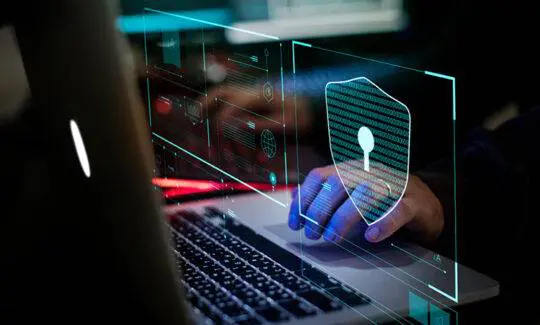The Pros and Cons of ChatGPT in Cyber Security
ChatGPT (Generative Pretrained Transformer) is an advanced artificial intelligence (AI) technology model trained by OpenAI that has become a hot topic in tech news. It’s opened a myriad of opportunities in many sectors, but one of the most interesting is cyber security.
ChatGPT has shown early examples where it can be used by security teams to help identify and thwart cyberattacks. This technology has the potential to revolutionise the way security teams operate, enabling them to work more efficiently and effectively to protect against cyber threats.
The Pros of ChatGPT in Cyber Security
One of the key initial benefits of using ChatGPT in security operations is that it helps white hat penetration testing teams speed up repetitive tasks. This is because ChatGPT can automate many of the routine and time-consuming tasks associated with penetration testing. For example, ChatGPT can automate tasks such as scanning for vulnerabilities. It can also be used to identify potential attack vectors and verify the effectiveness of security controls. This frees up the time of penetration testers and security analysts, allowing them to focus on the more complex elements.
It’s worth keeping in mind that ChatGPT is in its infancy. It’s currently in the research release phase of its iterative deployment. This brings the same challenges as relying on automated penetration testing. The answer is only as good as the question being asked. Without in-house expertise, this could leave businesses vulnerable. It’s also only reliant on the model’s learning to date.
However, one of the key reasons why ChatGPT has the potential to be so effective in security operations is that it has the ability to learn from previous interactions and experiences. This means that ChatGPT will become more effective at identifying potential security threats and helping to thwart them. Additionally, ChatGPT is able to run 24/7, allowing security teams to receive real-time alerts and responses to potential threats at times that they previously couldn’t cover.
ChatGPT currently looks to become an essential tool for security teams looking to enhance their cyber security operations. By automating repetitive tasks, increasing the chances and skills of penetration testing, and providing real-time alerts and responses to potential threats, ChatGPT can help security teams to deliver faster, more effective, and more comprehensive cyber security solutions.
The Cons of ChatGPT in Cyber Security
Hackers have always been known for their cunning and innovative ways to attack organisations. With this advancement in technology, hackers have now found a new tool to help them enhance their skills and increase the success rate of their attacks. As with other defensive tools, hackers are experimenting with ChatGPT to improve their reconnaissance, write complex hacking malware, and infiltrate organisations’ perimeter security.
Reconnaissance is an essential step in the hacking process, as it provides hackers with the necessary information to plan their attacks. ChatGPT can help hackers in this phase by automating the data gathering process. For example, ChatGPT can be used to scrape websites for email addresses, phone numbers, and other information that can be used for social engineering attacks. The tool’s ability to generate human-like text makes it easier for hackers to deceive employees and gain access to sensitive information.
Once the reconnaissance phase is complete, hackers can use ChatGPT to write complex malware that can bypass even the most sophisticated security systems. This tool enables hackers with limited technical ability to perform advanced techniques that would otherwise require years of training and experience. The ability to automate the process of writing malware makes it easier for script kiddies to enter the cybercrime world and carry out more sophisticated attacks.
ChatGPT can also be used to write custom payloads that can bypass anti-virus software and penetrate the target system. The tool’s ability to generate human-like text also makes it easier for hackers to trick employees into downloading malware disguised as a harmless file. This is particularly concerning for organisations as it can lead to a data breach, theft of sensitive information, and financial loss.
The economic squeeze the country is under has led to an increase in cybercrime. The availability of tools like ChatGPT is making it easier for individuals with little technical ability to enter the cybercrime world and carry out more sophisticated attacks. This is why it’s more important than ever for organisations to ensure that they have a strong defence-in-depth cyber program.
To protect against these types of attacks, organisations need to implement a multi-layered security approach that includes firewalls, intrusion detection and prevention systems, and anti-virus software. Using specialised outsourced services such as a Security Operations Centre (SOC) to monitor for and stop any malicious activity that does get inside the network provides businesses with 24/7 protection from cyberattack.
Additionally, with the potential for phishing emails to become harder to spot using ChatGPT’s content production capabilities, organisations need to educate their employees on how to identify and report suspicious activity. Regular penetration testing can also help organisations identify any vulnerabilities in their systems and take the necessary steps to fix them before hackers have a chance to exploit.
ChatGPT is a powerful tool that is helping hackers enhance their skills and increase the success rate of their attacks, as well as providing security professionals with efficiencies in their defence strategies. Organisations need to be aware of the opportunity and threat and take the necessary steps to protect themselves. By implementing a strong defence-in-depth cyber program and educating employees, organisations can reduce the risk of a data breach and protect their sensitive information.

